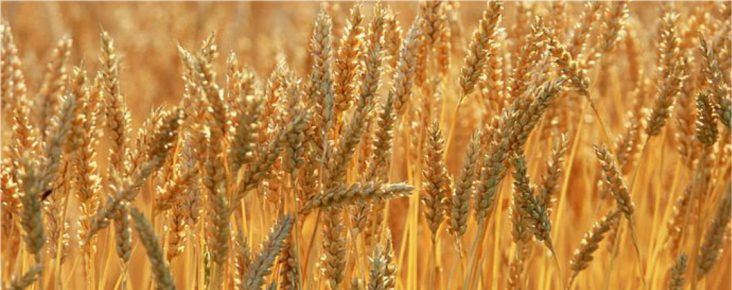Global climate change could dramatically impact wheat crops
by September 26, 2019 4:09 pm 726 views

In a new study, researchers, including at least one from the University of Arkansas, found that unless steps are taken to mitigate climate change, up to 60% of current wheat-growing areas worldwide could see simultaneous, severe and prolonged droughts by the end of the century. Wheat is the world’s largest rain-fed crop in terms of harvested area and supplies about 20% of all calories consumed.
The risk of widespread drought in wheat production areas is four times the level scientists see today, Song Feng, associate professor of geosciences at the University of Arkansas and the second author on the study published in the journal Science Advances. Such droughts would be a shock to the food production system.
“If only one country or region sees a drought there is less impact. But if multiple regions are affected simultaneously, it can affect global production and food prices, and lead to food insecurity,” he said.
For the study, Feng and colleagues analyzed 27 climate models, each of which had three different scenarios. Terabytes of information were studied and it took a couple months, he said. Feng and Miroslav Trnka, a professor at the Global Change Research Institute in the Czech Republic and first author of the study, came up with the idea for the study over pizza at a conference in Nebraska. They sketched out the initial ideas for the study on the back of a napkin.
The study found that historically, the total area affected by severe drought worldwide and food prices are closely related. More widespread drought has meant higher food prices in the past.
Given present-day weather patterns, severe drought could affect up to 15% of current wheat growing areas, the study states. Researchers found that even if global warming is held to 2 degrees Celsius above pre-industrial levels, the target of the Paris Agreement, up to 30% of global wheat production areas could see simultaneous drought. “This clearly suggests that global warming will affect food production,” said Feng.
Many scientists believe that global climate change is the direct result of human activities, mainly the release of carbon dioxide into the atmosphere that started to spike during the industrial revolution and continues to this day. The 10 hottest years ever recorded have all occurred in the last 21 years, which has caused sea levels to rise, Artic ice sheets to melt, and has led to more volatile weather patterns, according to NASA.
In Arkansas, about 110,000 winter wheat acres were harvested last year. Those acres produced 55 bushels per acre. It’s typically planted in October and harvested in June. Wheat is the third most grown crop in the U.S. About 46 million wheat acres were grown last year, according to the United States Department of Agriculture.
